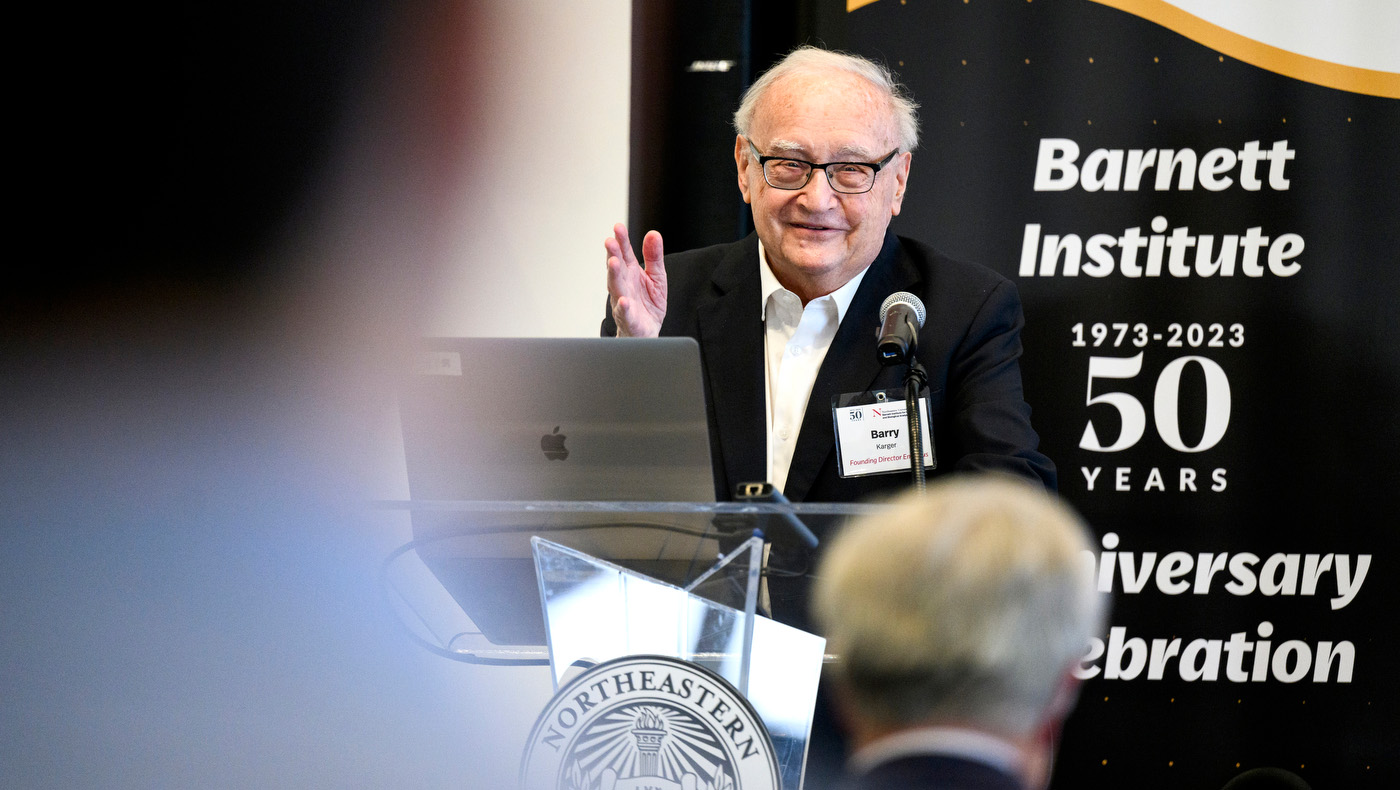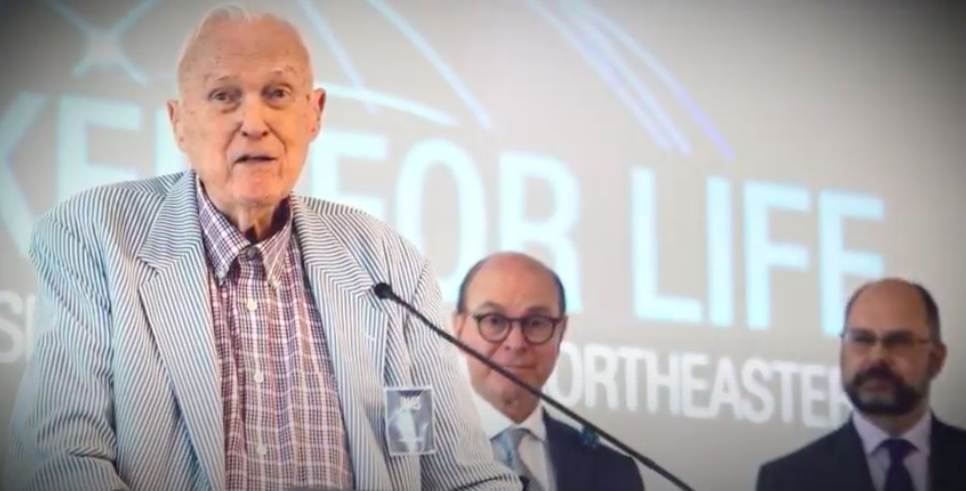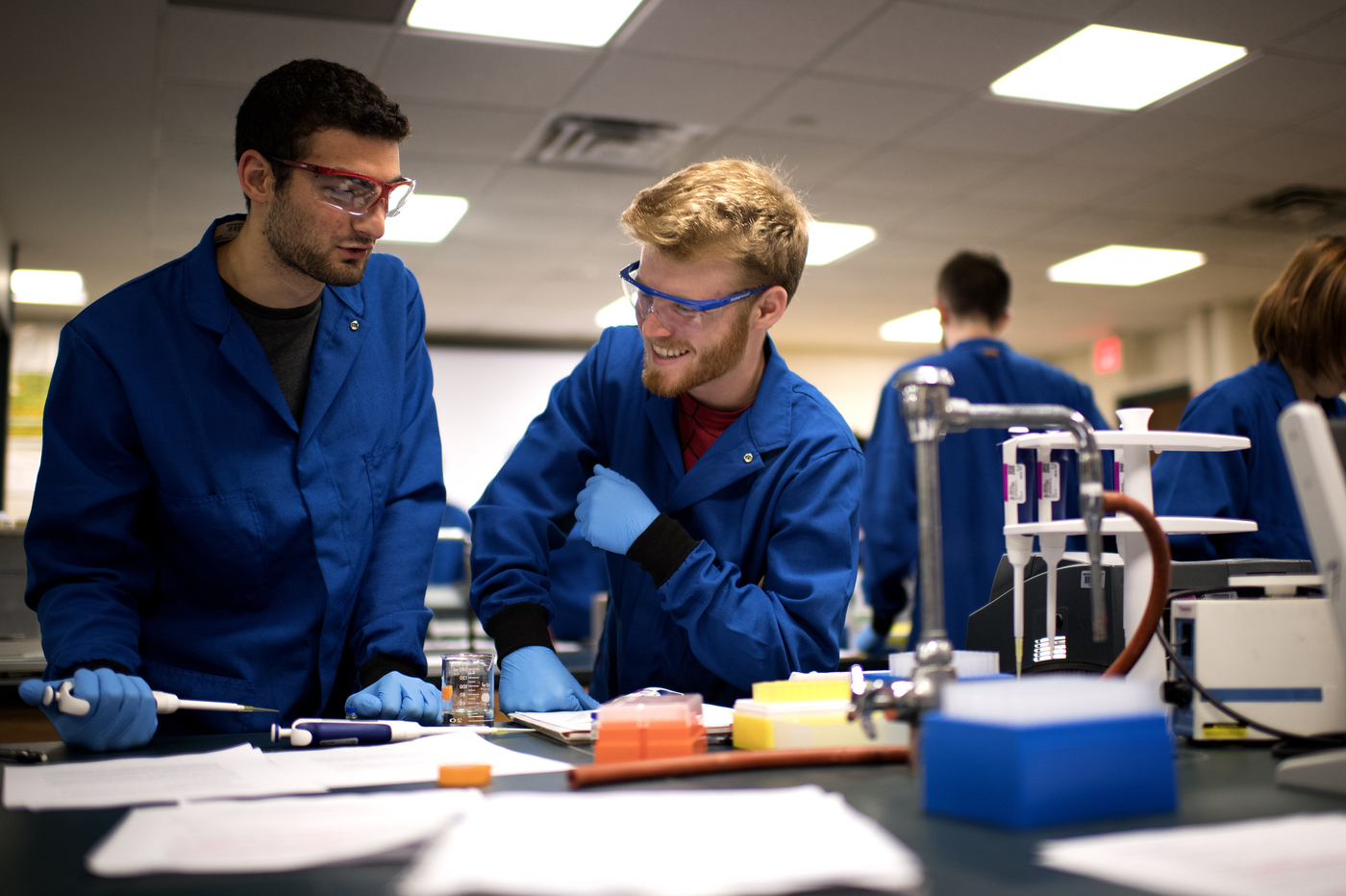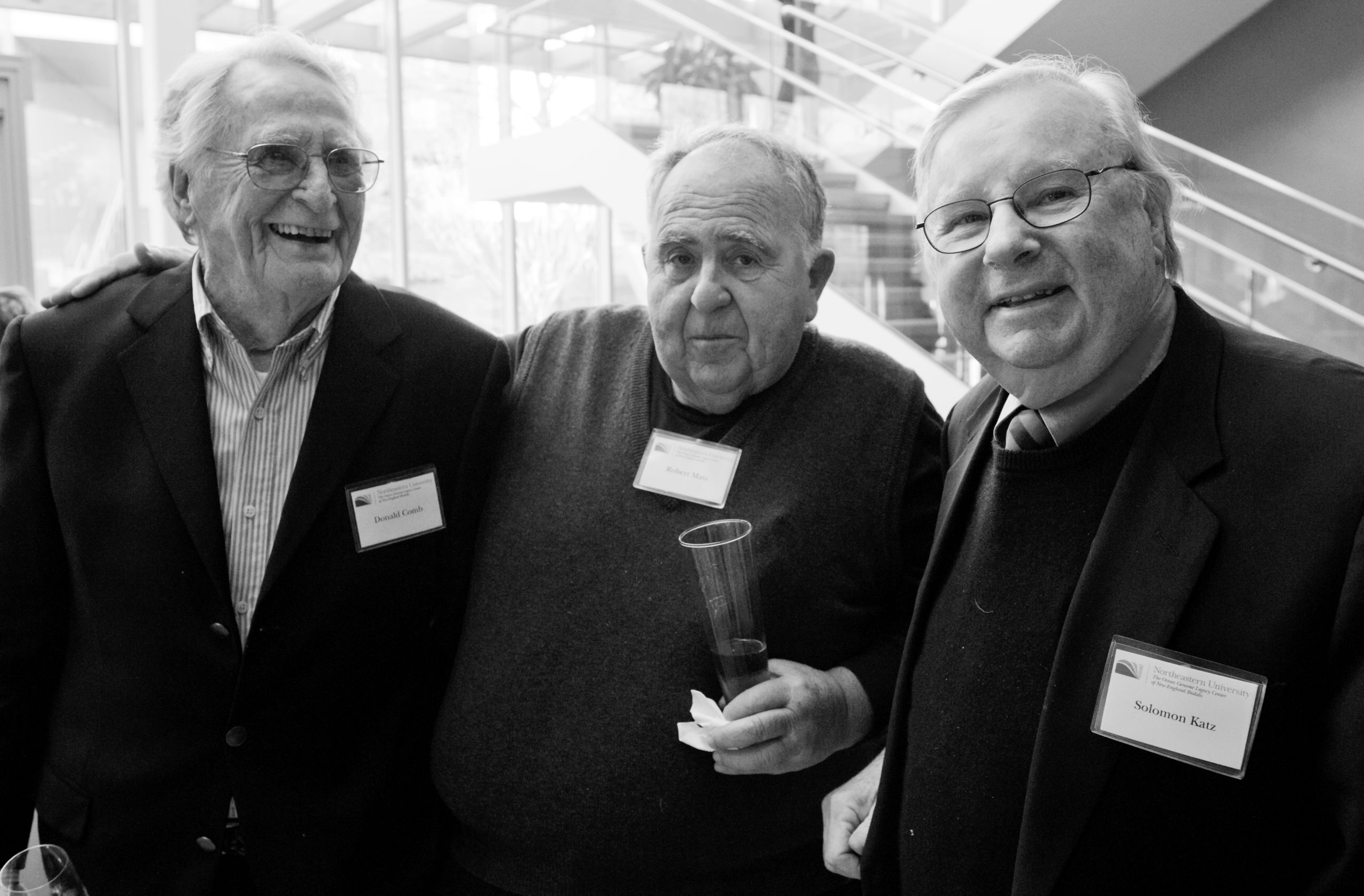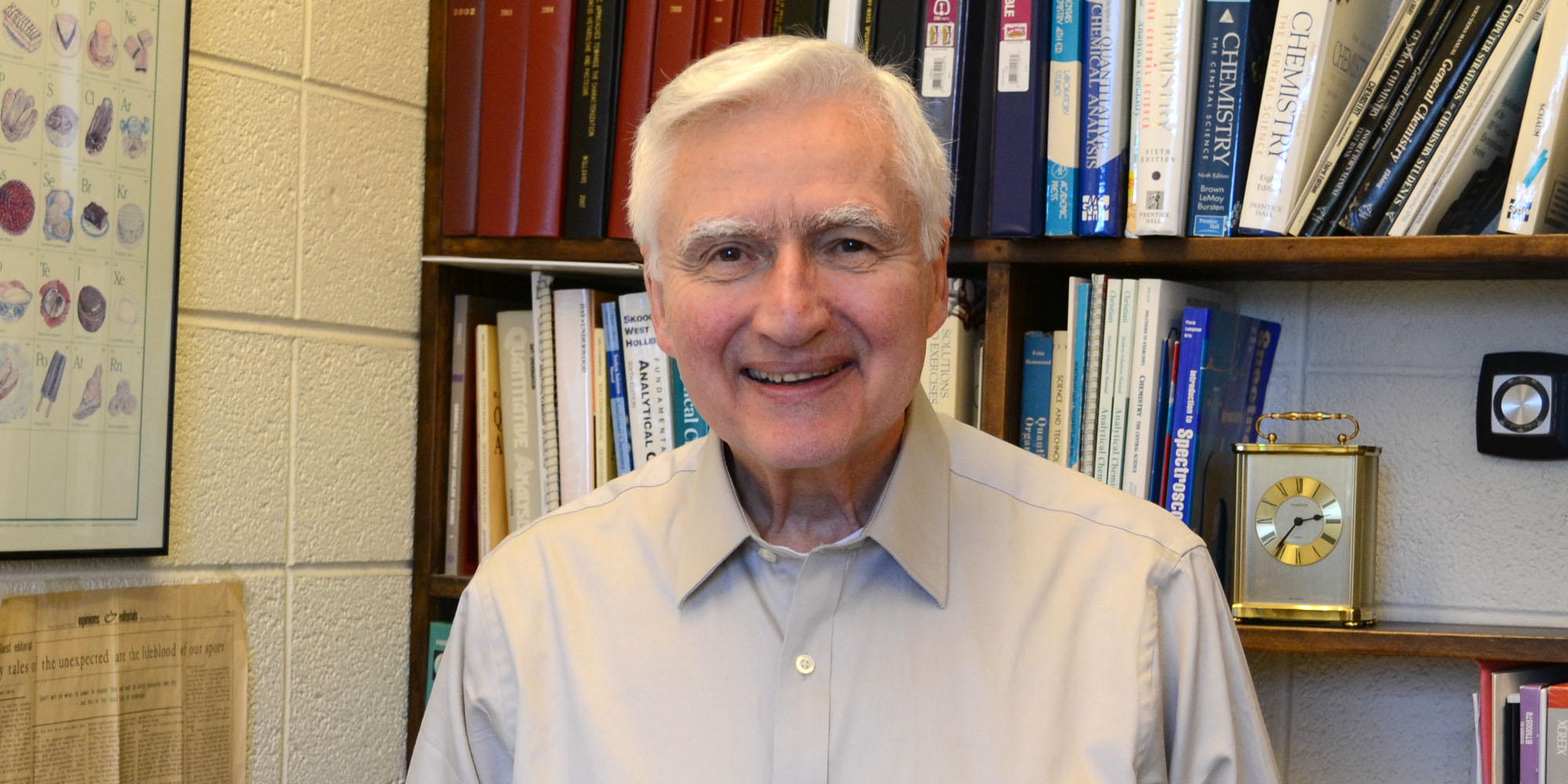
Barnett Institute for Chemical and Biological Analysis
The Barnett Institute is a center of excellence in the development and application of technologies for biopharmaceutical characterization and proteomics and systems biology. Through its faculty, research scientists, and students, the Barnett Institute makes a powerful impact on health—improving possibilities every day for how we can address the challenging diseases and complex healthcare issues of the future.
The core mission of the Barnett Institute is to develop new instrumentation and analytical methods to address emerging needs in biomedical research and biopharmaceutical development. This effort is simultaneously with ongoing basic and clinical research programs and industrial applications and collaborations.
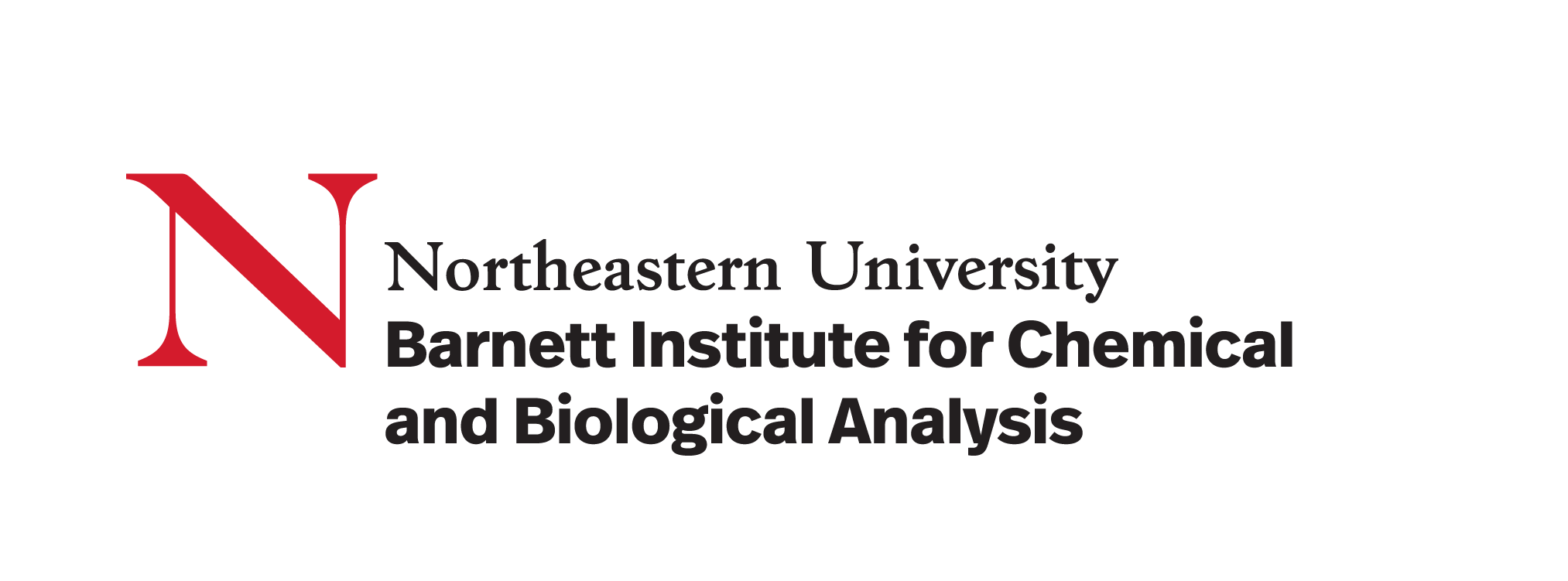
During its history, the Barnett Institute of Chemical and Biological Analysis has pioneered breakthroughs in separation science, protein analysis, DNAs sequencing and proteomics.
The Institute was established in 1973 as a center for advanced interdisciplinary research in the chemical analysis sciences at Northeastern University, in the educational hub of Boston, Massachusetts. It is housed in the Department of Chemistry & Chemical Biology in the College of Science at Northeastern. research and biopharmaceutical development. This effort is simultaneously with ongoing basic and clinical research programs and industrial applications and collaborations.
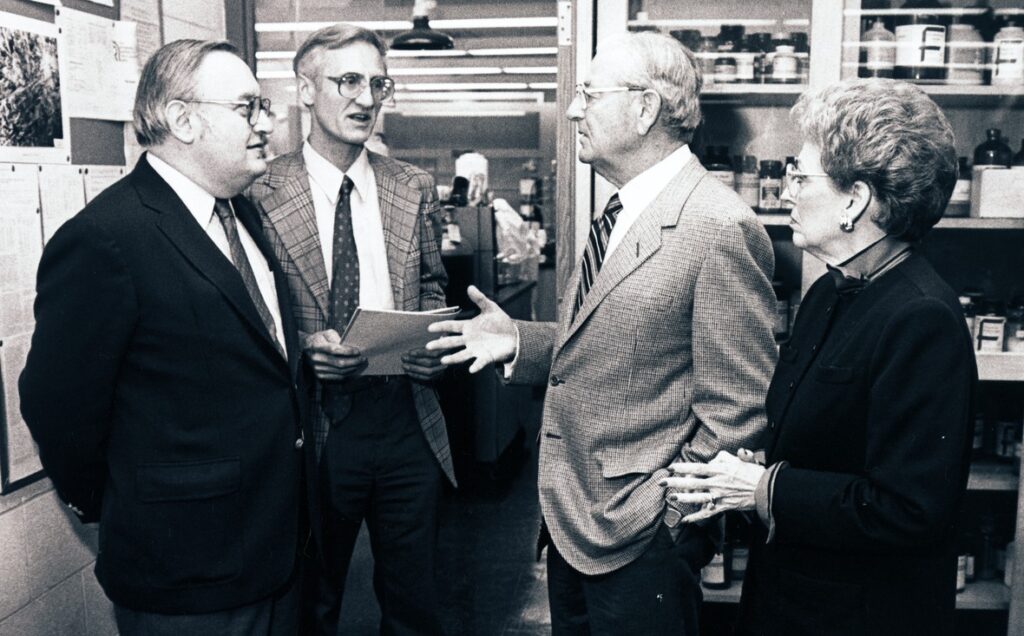
Today, with over 50 scientists and a $12 million endowment, the Institute is recognized internationally as one of the premier centers for cutting-edge research and advanced training in analytical chemistry for biomedical applications. The Barnett Institute’s close ties to the Boston medical industrial communities, along with a active program of spin-outs and licensing technology, provides for many “real life” applications of research advances which have led to more than 1,000 published papers and 75 patents.
More than 500 PhD students, post-doctoral fellows and staff have gone on to distinguished careers in academia, industry and government. The bioanalytical research is at the interface of biology, medicine, chemistry, data science and computer science. Students and staff are trained to develop broad interdisciplinary knowledge, think analytically, and understand in-depth the complexity of the application goals.
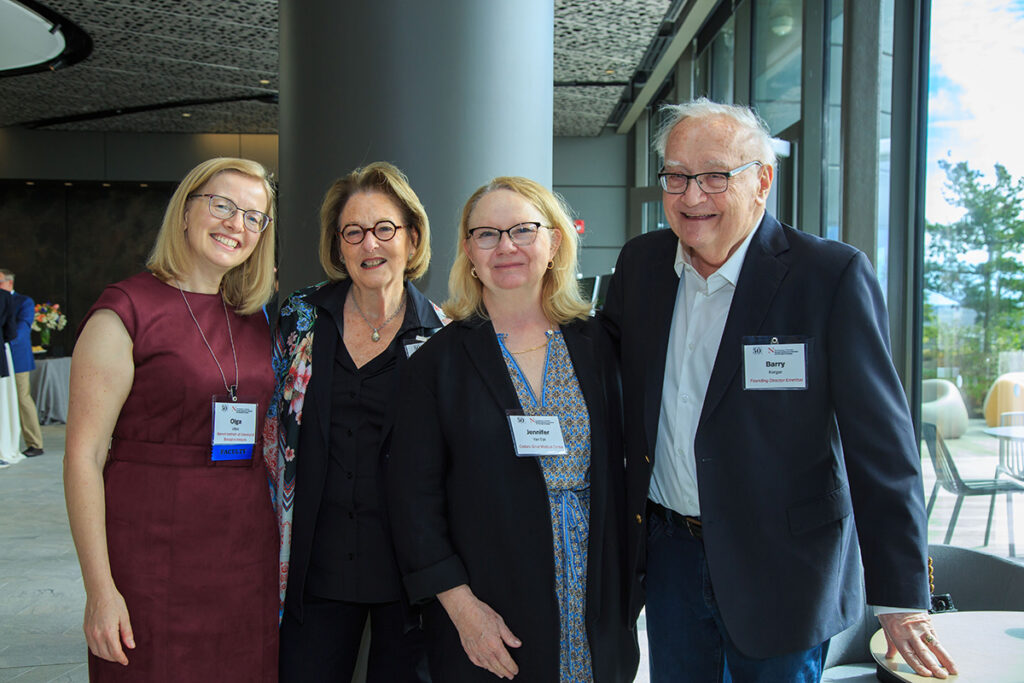
The Barry L. Karger Medal in Bioanalytical Chemistry
The winners of the Karger Medal have significantly contributed to the development of new bioanalytical methods and high impact in the life sciences.
Research groups
The Barnett Institute is comprised of 15 Faculty Fellows from the College of Science, Khoury College of Computer Science, Bouvé College of Health Sciences, and the College of Engineering, who work together with research scientists and students in a highly collaborative environment.
Director
-

Dr. Vitek’s group develops statistical methods and software for quantitative mass spectrometry-based investigations, to characterize the components of the biological systems, their function, and their relevance to disease.
Faculty Fellows
-

Jeffrey Agar, PhD
Dr. Agar’s group develops mass spectrometry tools for studying neurologic disease, including single-cell imaging, top-down mass spectrometry, and a new class of crosslinkers that we are developing into protein stabilizing drugs.
-

The unique offerings at BATL meet the needs of multiple and diverse scientific and medical stakeholders, from early discovery and development in industry to experiential training, from global regulatory convergence to use-inspired research.
-
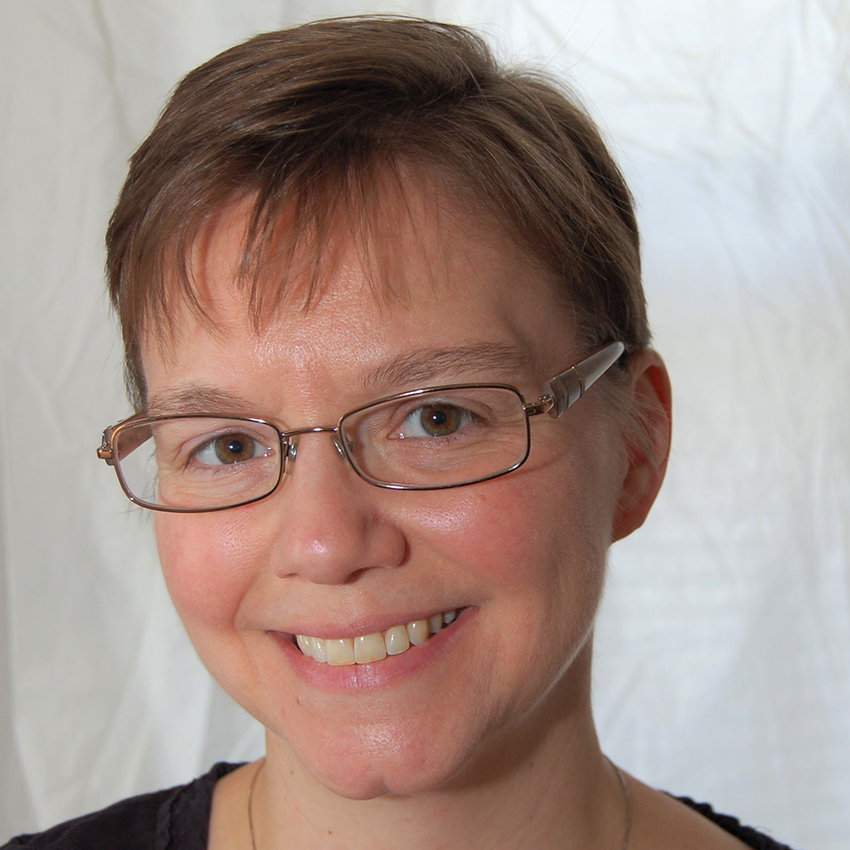
Research in Dr. Beuning’s group focuses on understanding the structure-function-dynamics relationships of proteins and enzymes, with a particular focus on proteins involved in DNA metabolism and DNA damage tolerance.
-

Dr. Giese’s research focuses on testing biosamples such as breath, placenta and urine for small molecules by mass tag mass spectrometry, including metabolome and DNA adductome analyses.
-
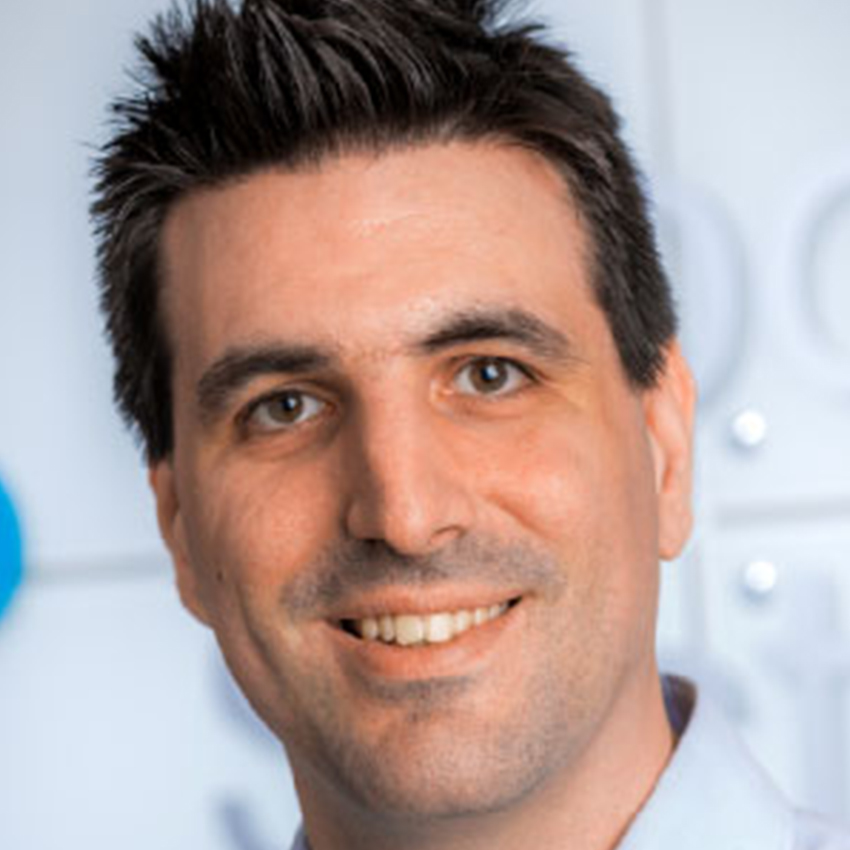
Dr. Gyori’s research focuses on the intersection of systems biology, bioinformatics, and artificial intelligence to understand how biological cells work and react to drugs and environmental signals.
-
Dr. Ivanov’s group develops microscale liquid phase separation- and mass spectrometry-based molecular characterization technologies for deep proteomic profiling of limited biological and clinical samples; detailed analysis of proteins, including isoforms, modifications, and non-covalent complexes; and isolation and omics profiling of exosomes and other extracellular microvesicles.
-
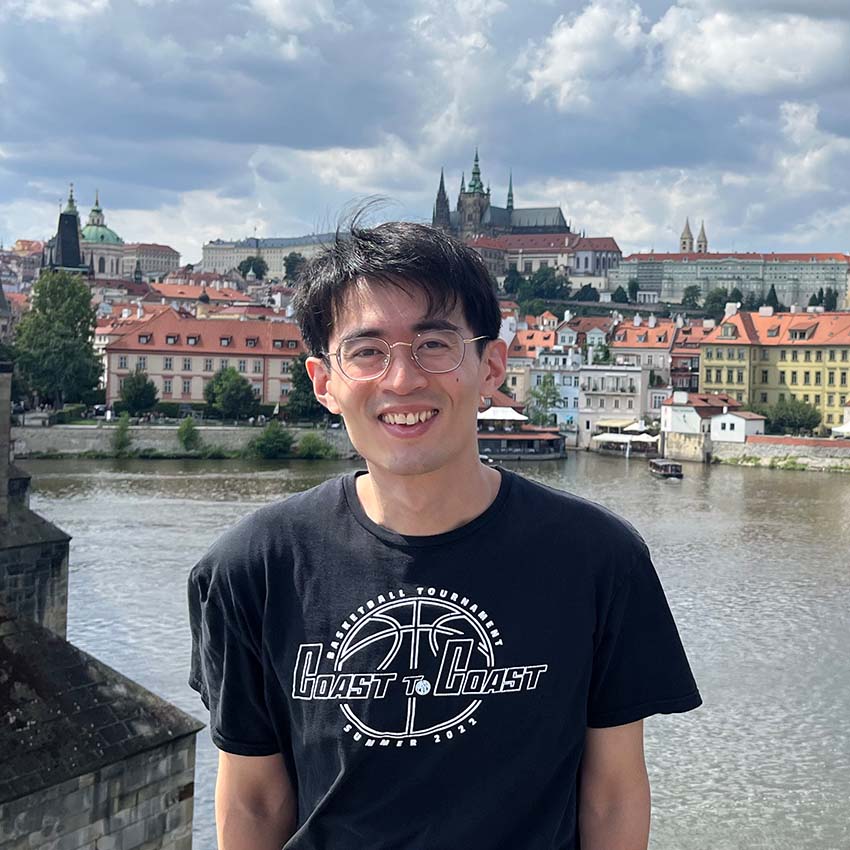
Dr. Jin’s research aims to use geometric and generative AI models to improve the costly, time-consuming process of drug discovery.
-

Dr. Skinner’s group uses mass spectrometry-based metabolomics and native proteomics to determine how metabolites and proteins interact in human health and disease.
-
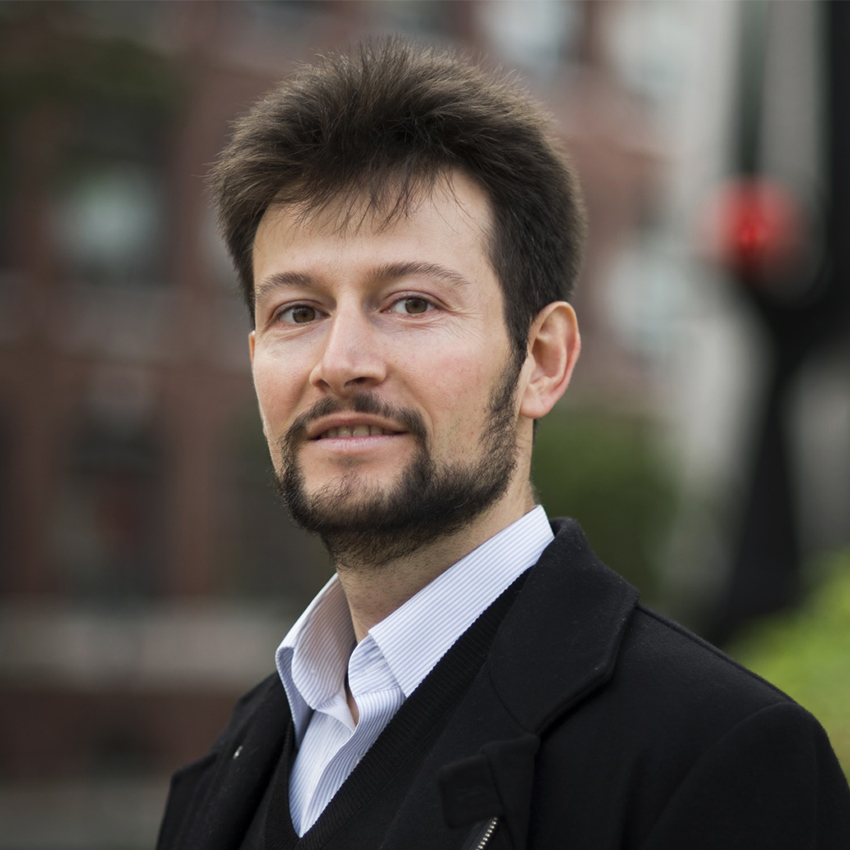
Dr. Slavov’s group develops methods for quantifying proteins in single cells at high-throughput. They apply these methods to analyze protein networks at single-cell resolution and link the network states to functional phenotypes, such as cell type and differentiation potentials.
-
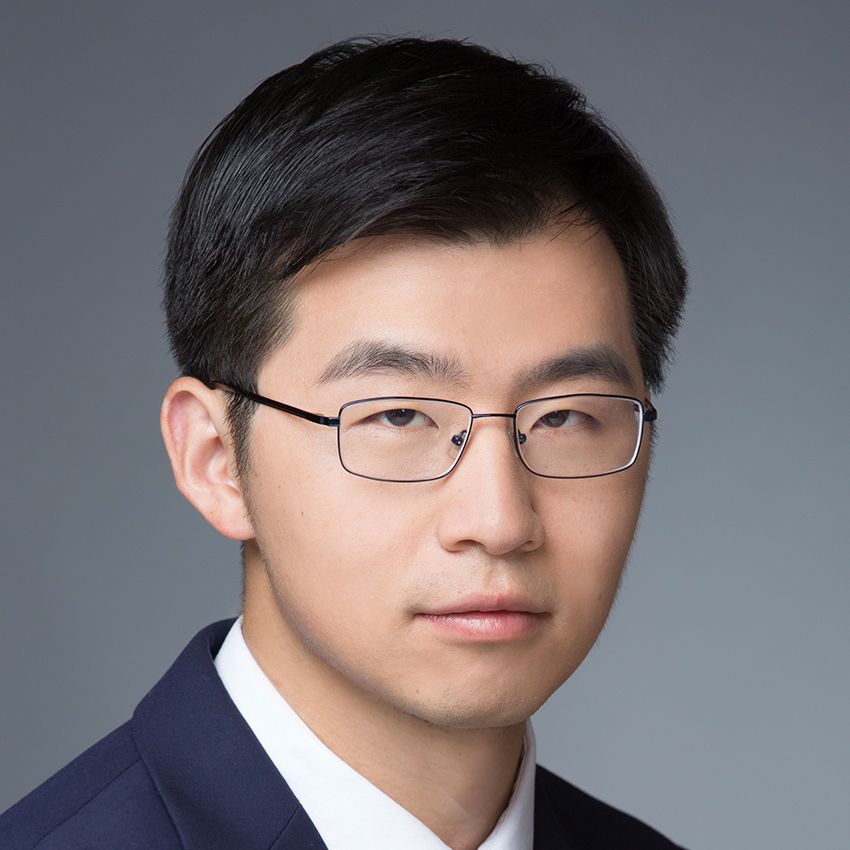
Dr. Tian’s group develops and applies chromatography-mass spectrometry methods to analyze emerging organic contaminants in environmental and biological samples, assessing the risks to human health and the ecosystem.
-

Research in Dr. Zhou’s laboratory, aka SunnyLand, centers on the chemistry and analysis of proteins, including hybrid modality engineering, developing new methodologies and creating better therapeutics.
Affiliated Faculty Fellows
-

Dr. Deravi’s group works at the interface of bio-analytical chemistry, materials science, and design, where they investigate fundamental mechanisms behind systems in biology and design new classes of protein-based biomaterials that may interface with or enhance the performance of humans.
-
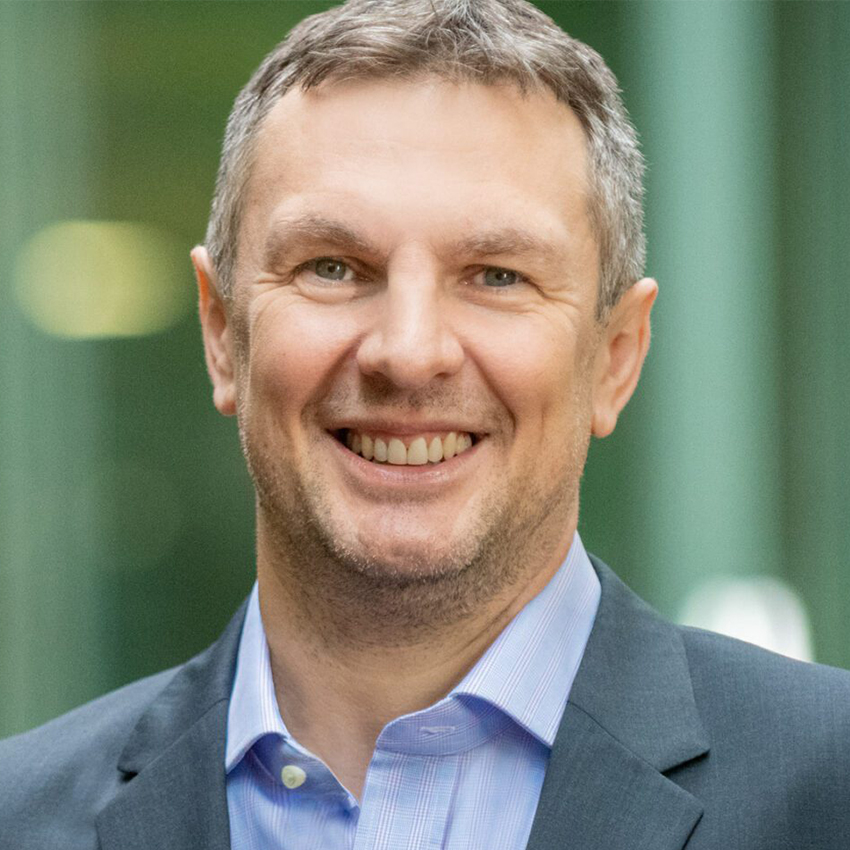
Dr. Radivojac’s group studies protein structure, dynamics, expression, and function by integrating various forms of molecular and genetic data and develop machine learning approaches to make predictions. Understanding protein function is a step towards understanding molecular mechanisms of human genetic disease.
Emeriti
-
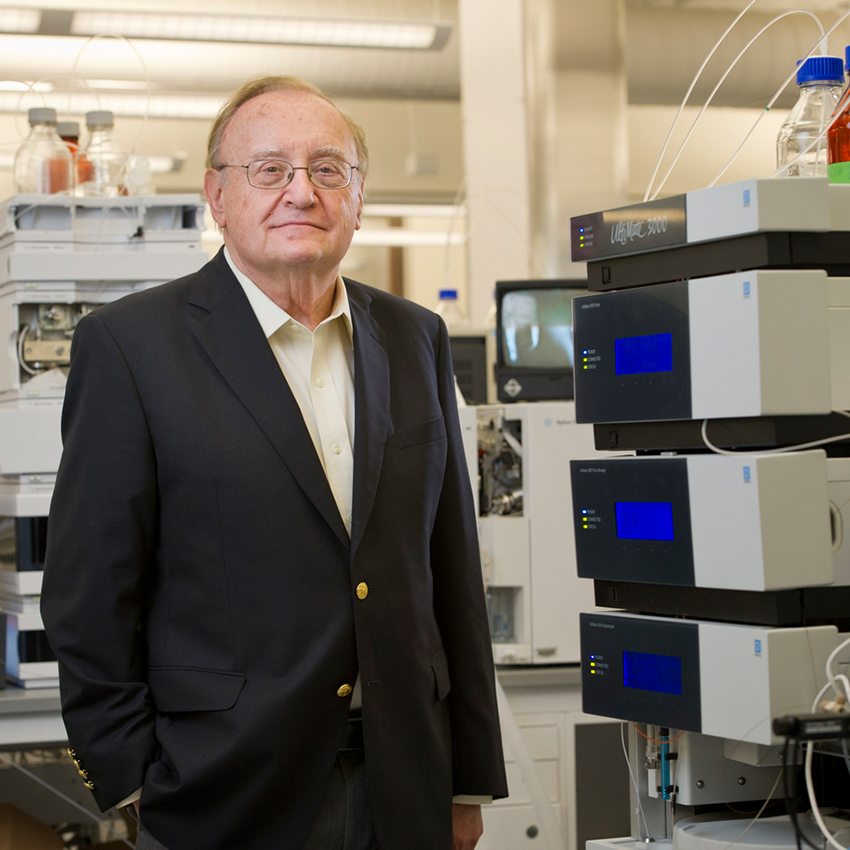
Dr. Karger is the founding director of the Barnett Institute.
-

-
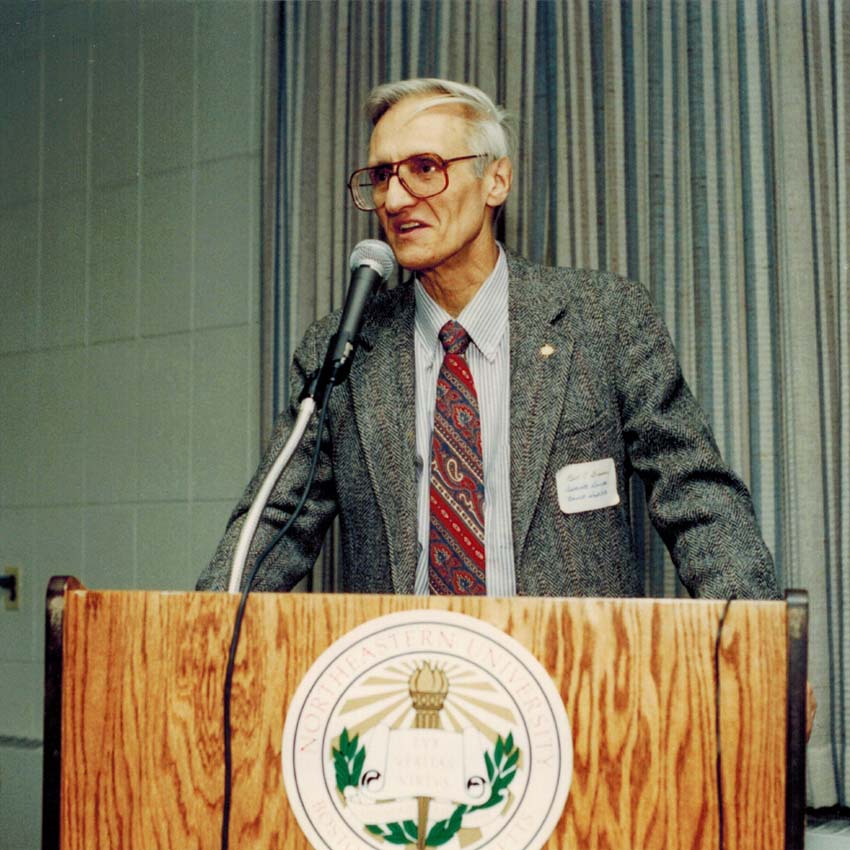
-
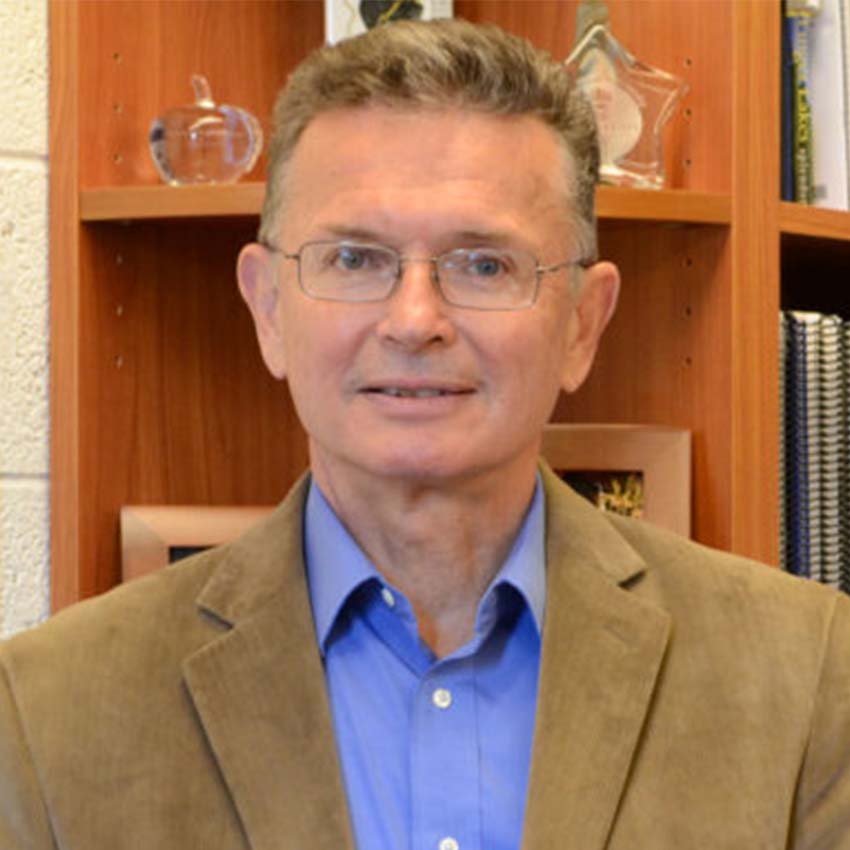
-

-

-
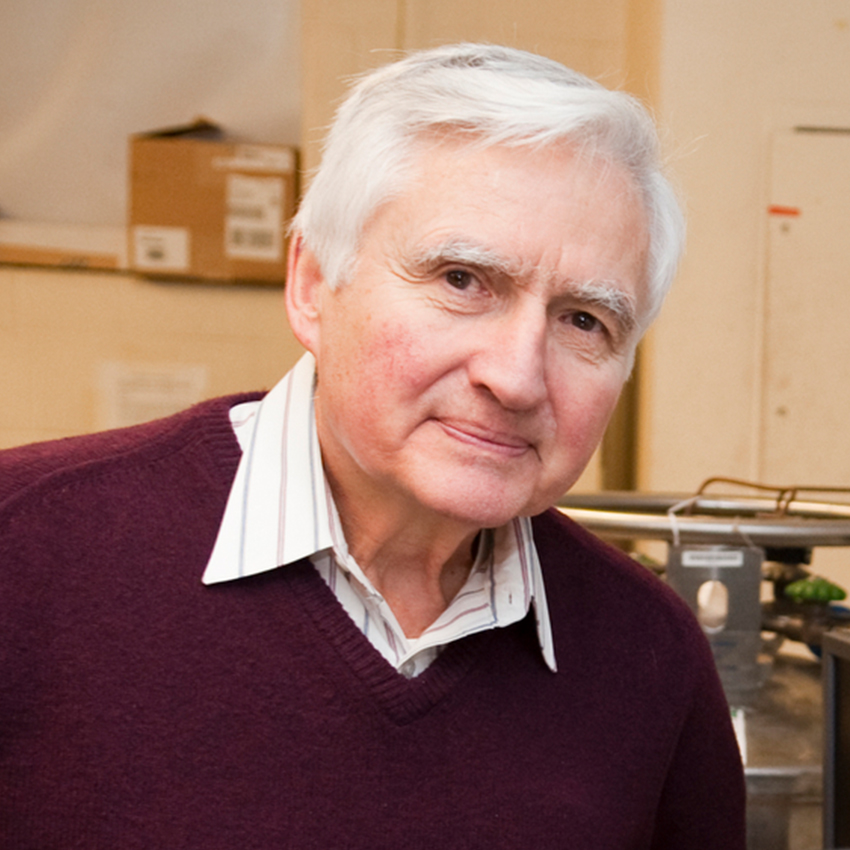
Collaborations
Biopharmaceutical Analysis Training Lab (BATL)
BATL offers hands-on training in state-of-the-art liquid chromatography/mass spectrometry analysis and relevant data management, focusing upon advanced characterization of biotherapeutic’s structure, esp. glycosylation. The courses are designed for scientists, technicians and also managers in the pharmaceutical and biotech industry as well as in government and academic institutions.
BATL is recognized as a Center of Regulatory Excellence in Biotherapeutics by the Asia-Pacific Economic Cooperation and is a training partner of the International Council for Harmonization.
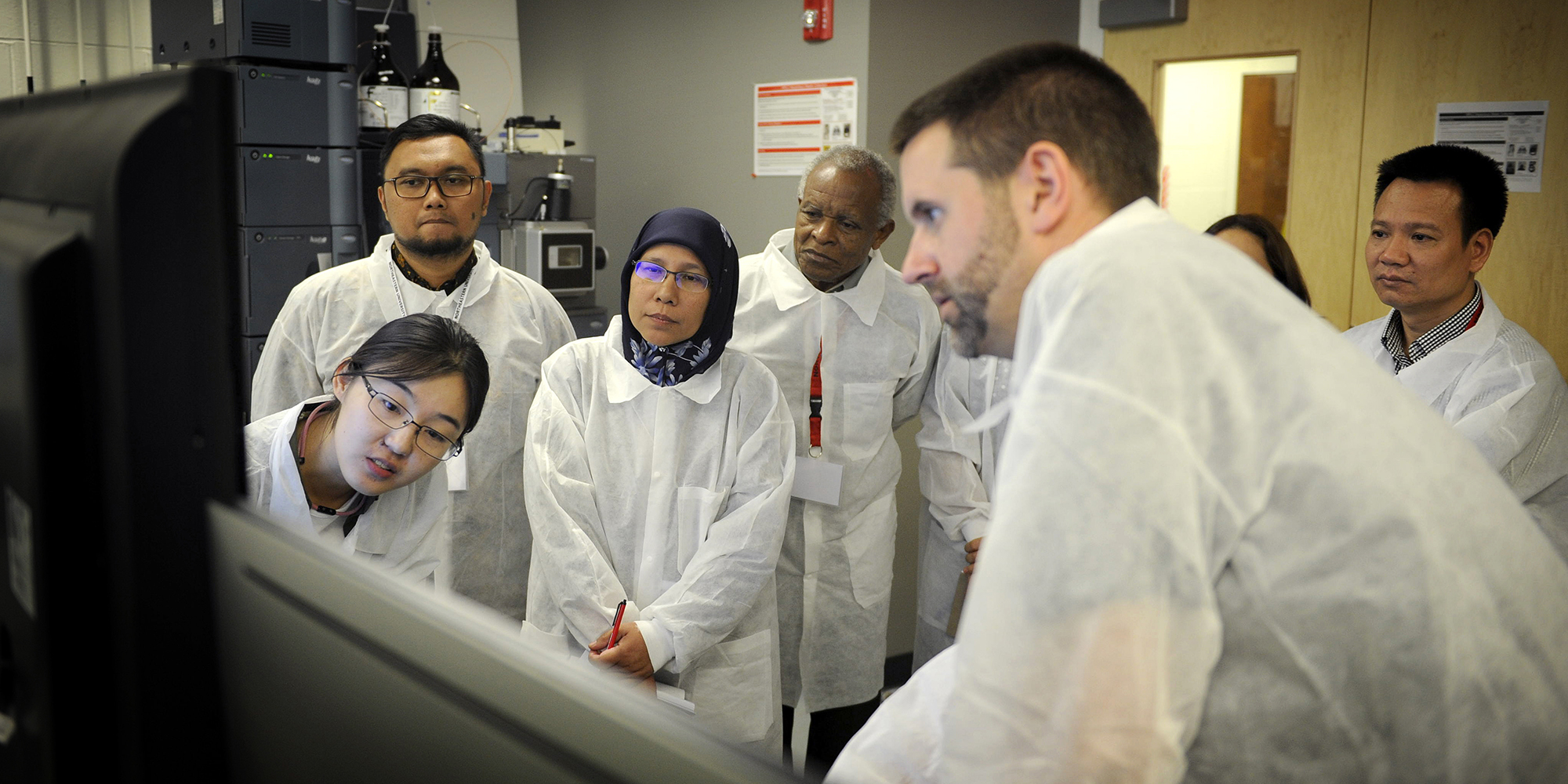
News
Contact
General inquiries
617-373-2838
[email protected]
Mailing Address:
Northeastern University
Barnett Institute
115 Richards Hall
360 Huntington Avenue
Boston, MA 02115
Office Address:
Northeastern University
Barnett Institute of Chemical and Biological Analysis
115 Richards Hall
360 Huntington Avenue
Boston, MA 02115
